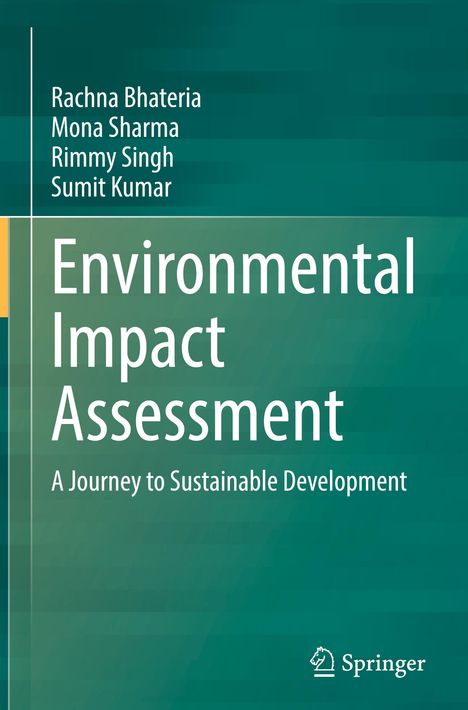Rachna Bhateria: Environmental Impact Assessment, Gebunden
Environmental Impact Assessment
- A Journey to Sustainable Development
(soweit verfügbar beim Lieferanten)
- Verlag:
- Springer Nature Switzerland, 08/2024
- Einband:
- Gebunden, HC runder Rücken kaschiert
- Sprache:
- Englisch
- ISBN-13:
- 9783031667961
- Artikelnummer:
- 11946088
- Umfang:
- 184 Seiten
- Nummer der Auflage:
- 2024
- Ausgabe:
- 2024
- Gewicht:
- 448 g
- Maße:
- 241 x 160 mm
- Stärke:
- 16 mm
- Erscheinungstermin:
- 18.8.2024
- Hinweis
-
Achtung: Artikel ist nicht in deutscher Sprache!
Klappentext
This book will cover the basic principles and salient features of EIA. The authors attempt to cover the shortcomings observed in EIA reports, the manner of conducting EIA for proposed projects, and also to facilitate the preparation of good quality EIA reports. The book is written in a straightforward format avoiding long descriptive texts to enhance the reader experience Although the focus is on the Indian context, the concepts and techniques of EIA described in this book are applicable universally.
An Environmental Management Plan (EMP) is also discussed, and this is an essential aspect of EIA in countries where priority is on economic development by way of development projects and when the EIA process has inherent weaknesses. For the continual improvement of EIA reports, EIA consultants maybe assigned the task of implementing and operationalizing the suggested EMP in addition to conducting an EIA study and in preparation of an EIA report. The system of peer review of EIA reports is also expected to improve EIA quality.
¿Environmental Impact Assessment: A Journey to Sustainable Development¿ is an attempt to cover EIA according to new knowledge acquired through research and experiences which will make this tool more versatile and dynamic. The authors recognise that since EIA is continuously expanding and developing there will always be potential for improving the scope of this book to make it more useful to the users as per their requirement.
This book will be of interest to academics, EIA professionals and consultants, EIA review / appraisal authorities and particularly stakeholders in emerging economies where major developmental work is being undertaken and which is expected to continue in decades to come.

